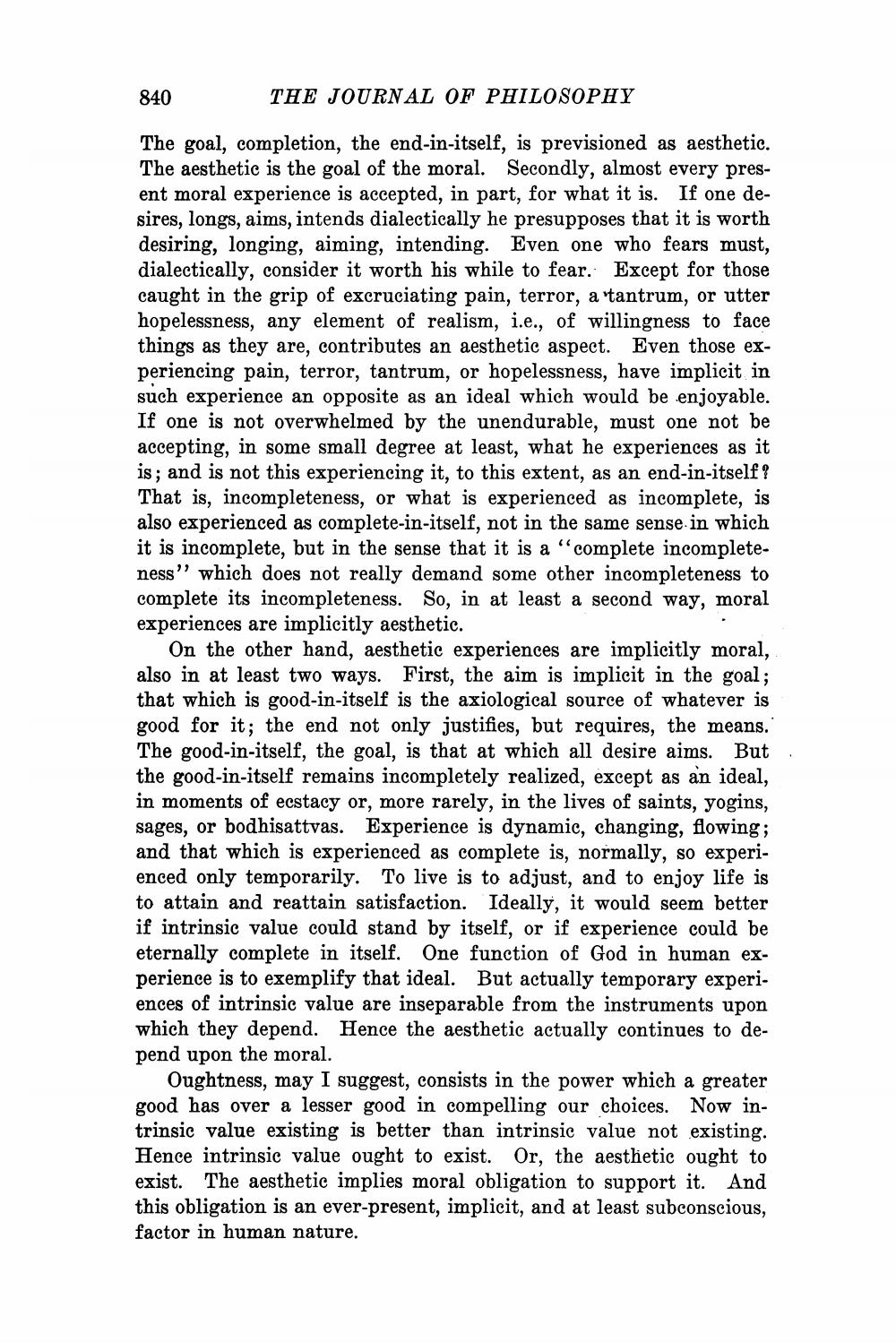Book Title: Three Essays On Aesthetics Author(s): Archie J Bahm Publisher: Archie J Bahm View full book textPage 4
________________ 840 THE JOURNAL OF PHILOSOPHY The goal, completion, the end-in-itself, is previsioned as aesthetic. The aesthetic is the goal of the moral. Secondly, almost every present moral experience is accepted, in part, for what it is. If one desires, longs, aims, intends dialectically he presupposes that it is worth desiring, longing, aiming, intending. Even one who fears must, dialectically, consider it worth his while to fear. Except for those caught in the grip of excruciating pain, terror, a tantrum, or utter hopelessness, any element of realism, i.e., of willingness to face things as they are, contributes an aesthetic aspect. Even those experiencing pain, terror, tantrum, or hopelessness, have implicit in such experience an opposite as an ideal which would be enjoyable. If one is not overwhelmed by the unendurable, must one not be accepting, in some small degree at least, what he experiences as it is; and is not this experiencing it, to this extent, as an end-in-itself? That is, incompleteness, or what is experienced as incomplete, is also experienced as complete-in-itself, not in the same sense in which it is incomplete, but in the sense that it is a complete incompleteness" which does not really demand some other incompleteness to complete its incompleteness. So, in at least a second way, moral experiences are implicitly aesthetic. On the other hand, aesthetic experiences are implicitly moral, also in at least two ways. First, the aim is implicit in the goal; that which is good-in-itself is the axiological source of whatever is good for it; the end not only justifies, but requires, the means. The good-in-itself, the goal, is that at which all desire aims. But the good-in-itself remains incompletely realized, except as an ideal, in moments of ecstacy or, more rarely, in the lives of saints, yogins, sages, or bodhisattvas. Experience is dynamic, changing, flowing; and that which is experienced as complete is, normally, so experienced only temporarily. To live is to adjust, and to enjoy life is to attain and reattain satisfaction. Ideally, it would seem better if intrinsic value could stand by itself, or if experience could be eternally complete in itself. One function of God in human experience is to exemplify that ideal. But actually temporary experiences of intrinsic value are inseparable from the instruments upon which they depend. Hence the aesthetic actually continues to depend upon the moral. Oughtness, may I suggest, consists in the power which a greater good has over a lesser good in compelling our choices. Now intrinsic value existing is better than intrinsic value not existing. Hence intrinsic value ought to exist. Or, the aesthetic ought to exist. The aesthetic implies moral obligation to support it. And this obligation is an ever-present, implicit, and at least subconscious, factor in human nature.Page Navigation
1 2 3 4 5 6 7 8 9 10 11 12 13 14 15 16 17 18 19 20 21 22 23 24 25 26 27 28 29 30 31 32
